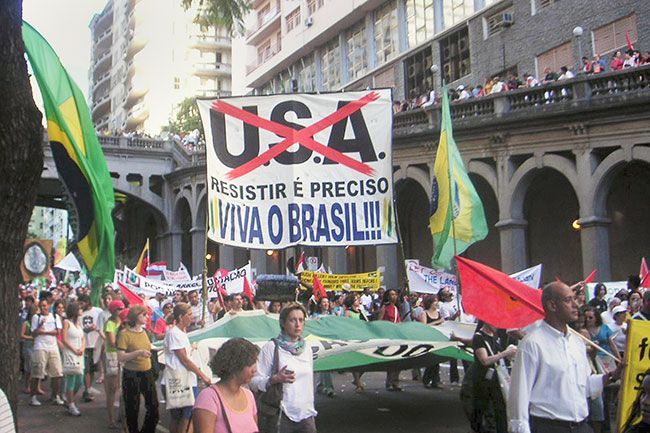Schuck: With intoxicating freedom comes sober responsibility

My daughter and I came home from Denmark about two weeks ago.
Actually, that makes it sound more like a vacation than it actually was. Truth be told, she had just wrapped up a semester in Sweden, and, good Dad that I am, I went over to help her pack the stuff she had accumulated in her dorm room.
Seeing Denmark together was an added bonus. I wish we’d had more time there, as Copenhagen’s food carts are legendary, but we faced some time constraints.
She had an internship to get back to in Minneapolis, and I prefer to be in the United States on the Fourth of July.
There’s really nothing wrong with spending Independence Day in a foreign country. It’s just … different.
Having done it a half-dozen or so times now, my experiences cover quite a range.
At one end of the spectrum is Canada, where the Fourth of July was basically just another Tuesday.
Conversely, I’ve spent the holiday in Middle Eastern countries, where events were a little more “sporty” — as in, “I think I’ll wait to go grocery shopping until after the protesters finish burning down the Pizza Hut.”
My first encounter with tear gas — for the record, not my fault — came on a Fourth of July in the South Korean capital of Seoul. The story is pretty darn hilarious, but 30 years later, I have yet to tell my mother about it.
The key point is, for good or ill, foreigners’ perceptions of and reactions to the Fourth are a solid barometer of their country’s relationship to the United States.
The day is a powerful symbol to the U.S., and other people know it. So in a lot of places, it’s a day for protests.
That’s not always easy to take as an American. Watching people burn our flag or shout anti-American slogans is not pleasant.
Depending on the time and place, it can also be more than a little scary. Personally, though, I try to evaluate these actions in context.
First off, while there’s a tendency to call them “anti-American” demonstrations, they rarely were. A more accurate description would be “anti-American policy” demonstrations.
The issues being raised were not with America, but with America’s actions. That matters.
Furthermore, the protests were generally aimed at gaining our attention, at drawing our eyes to divergences between our stated ideals as a nation and our observed choices. People don’t do that in the absence of hope.
That is, foreigners taking to the street on the Fourth of July did so not simply because they sought to point out America’s failures, but because they expected us to do better — and understood that we could.
Like it or not, America carries the burden of expectations. People expect us to do right and feel an obligation to tell us when we fail. And I’m OK with that.
I would rather endure a thousand years of criticism than lose our moral standing.
There’s a profound asymmetry here, I know. Other countries get to play by different rules and be held to different standards.
Crowds don’t fill the world’s streets on Norwegian Constitution Day. So be it.
If America is truly different — and I believe it is — then Americans must accept being held to a different standard. Remember, while other countries define themselves by soil or by blood, America is rooted in an idea: “We hold these truths to be self-evident ... ”
Surely, we all know what follows. More critically, so does the rest of the world.
Guest writer Eric Schuck holds a Ph.D. in economics from Washington State University and a professorship in economics at Linfield University. He’s twice been honored with Fulbright Fellowships to work and study abroad, once in South Africa and once in Lebanon. An officer in the Navy Reserve, he’s also served a pair of active-duty military tours in the Middle East. He makes his home in McMinnville with his wife and three children.








Comments